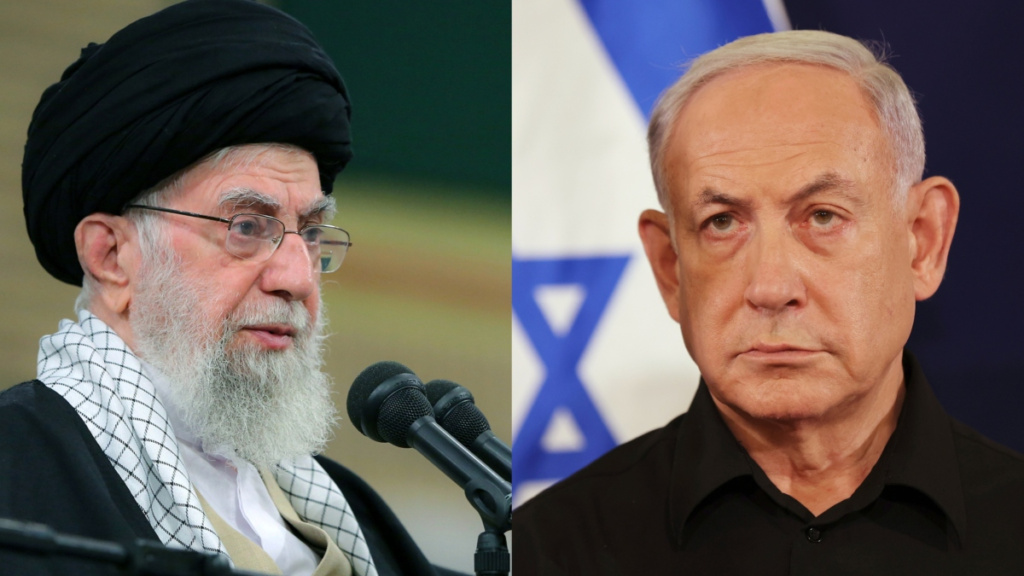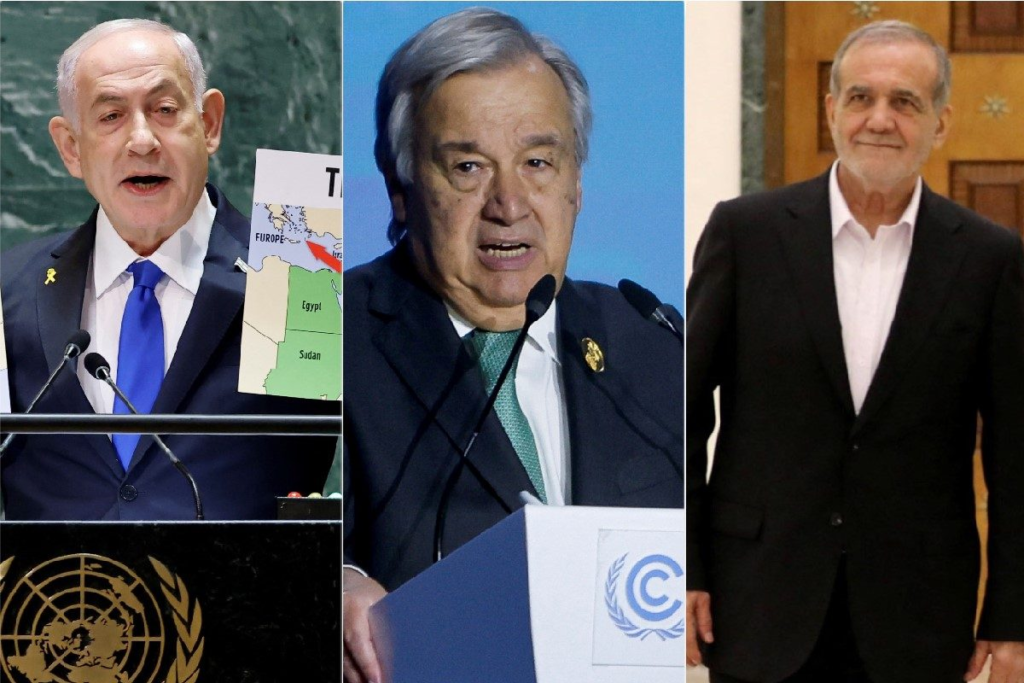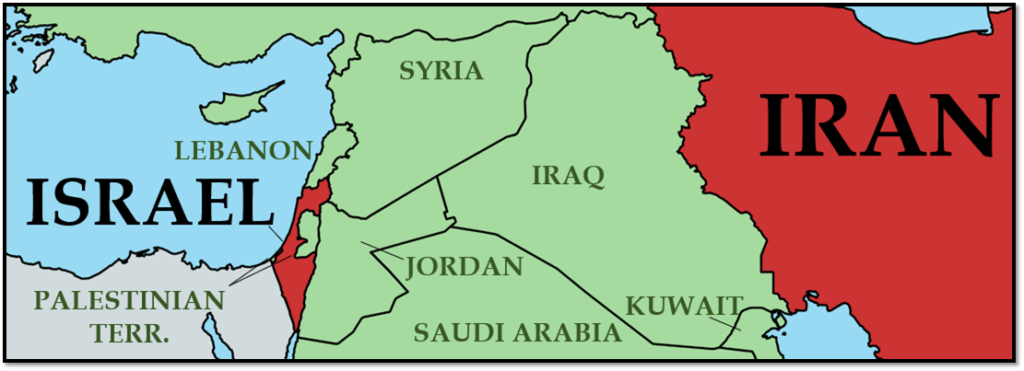The recent escalation between Israel and Iran has opened a new chapter in the geopolitics of the Middle East. Israel now has the greatest opportunity in 50 years to change the face of the Middle East.
With a significant shift in power dynamics, the opportunity to redefine the region’s future has never been clearer. Former Israeli Prime Minister Naftali Bennett, in response to Iran’s missile offensive, highlighted this unprecedented moment for Israel, calling for bold action to seize the moment and reshape the region’s landscape.
This situation has been triggered by Iran’s decision to launch 108 ballistic missiles targeting Israel, in retaliation for the assassination of key figures from Hezbollah and Hamas in Israeli military operations.
Read : US Sends More Troops to Middle East as Lebanon Sees Deadliest Israeli Air Strike in 18 Years
While Israel’s advanced defense systems intercepted most of the missiles, the sheer scale of the offensive has pushed the region into a new level of tension. Bennett’s response, as a former military leader and politician, reflects his deep understanding of both the military and geopolitical implications of this attack.
Read : Sheikh Sabah Khaled Al-Sabah Recently Appointed as the Crown Prince of Kuwait
He emphasized that the current moment presents a rare chance for Israel to address long-standing security threats, particularly from Iran, which has long been a sponsor of terrorism in the region.
The Role of Iran in Middle Eastern Tensions
Iran’s role in Middle Eastern conflicts cannot be overstated. Over the past few decades, the country has strategically positioned itself as a regional power by supporting proxy groups like Hezbollah, Hamas, and the Houthis.
These groups, funded and armed by Iran, have carried out numerous attacks against Israel and other states in the region, destabilizing the Middle East and preventing peace efforts from gaining momentum.
Bennett referred to Iran as “the head of the octopus of terror,” controlling and directing these groups while remaining relatively insulated from direct retaliation.
Israel has now its greatest opportunity in 50 years, to change the face of the Middle East.
— Naftali Bennett נפתלי בנט (@naftalibennett) October 1, 2024
The leadership of Iran, which used to be good at chess, made a terrible mistake this evening.
We must act *now* to destroy Iran’s nuclear program, its central energy facilities, and to…
The former prime minister’s analogy is fitting, as Iran’s influence has stretched far beyond its borders, enabling it to maintain a significant presence across multiple conflict zones without ever directly engaging in large-scale warfare.
The assassination of Hezbollah leader Hassan Nasrallah and Hamas leader Ismail Haniyeh by Israeli forces marks a significant blow to Iran’s proxy network. With its tentacles temporarily weakened, Iran launched its missile offensive in an effort to demonstrate its military strength and to retaliate for the losses.
However, this move may have backfired, as Bennett pointed out that Iran’s leadership, once regarded as masters of strategic thinking, made a “terrible mistake.” The missile offensive, while designed to assert dominance, has instead exposed Iran’s vulnerabilities and presented Israel with a golden opportunity to cripple the regime’s central power structure.
For years, Israel has faced the dual threat of Iranian-sponsored terrorism and the looming specter of Iran’s nuclear program. Despite numerous international efforts to curb Iran’s nuclear ambitions, including the 2015 nuclear deal (which the U.S. later withdrew from), Tehran has continued to advance its nuclear technology, inching closer to the capability of developing a nuclear weapon. This, combined with Iran’s support for militant groups, has made it a significant threat not only to Israel but to the entire region.
A Rare Moment to Dismantle Iran’s Power
Bennett’s call to action stems from a belief that Israel must capitalize on this rare moment to dismantle Iran’s power. Israel now has the greatest opportunity in 50 years to change the face of the Middle East, as the current circumstances provide an ideal opening to weaken Iran’s military infrastructure.

Bennett’s post highlights the need for Israel to strike at Iran’s nuclear program and central energy facilities, two key pillars of the regime’s power. By targeting these crucial sectors, Israel could significantly diminish Iran’s ability to project power across the region, while also crippling its capacity to fund and support proxy militias.
For decades, Israel has prepared for a possible confrontation with Iran, knowing that the country’s nuclear ambitions pose an existential threat. Israel’s advanced intelligence capabilities, state-of-the-art defense systems, and highly trained military have ensured that the country remains ready to respond to threats from Iran at any moment.
However, direct action against Iran’s nuclear program has always been a highly sensitive issue, given the potential for regional escalation and international fallout. But now, with Iran’s proxies weakened and the regime’s military resources stretched, Bennett believes Israel has the justification and the capability to act decisively.
Bennett’s vision goes beyond simply protecting Israel’s borders. He sees this moment as an opportunity to bring about a broader change in the Middle East. By removing the threat of a nuclear-armed Iran and significantly weakening its influence, Bennett believes that Israel can pave the way for a more peaceful and stable region.
His emphasis on “acting now” reflects the urgency of the situation, as the window of opportunity may not remain open for long. Iran’s leadership is likely to regroup and strengthen its proxy network in the coming months, so Israel must move quickly to prevent this from happening.

Furthermore, Bennett argues that by targeting Iran’s central energy facilities, Israel could strike at the heart of the regime’s economic power.
Iran’s oil and gas resources are the lifeblood of its economy, and disrupting this sector would have far-reaching consequences for the regime’s ability to fund its military operations and maintain internal stability. A blow to Iran’s economy could also embolden the Iranian people to rise up against the regime, potentially leading to significant political change within the country.
The Path Forward for Israel and the Region
While Bennett’s statements reflect a desire for decisive action, the path forward for Israel and the region is far from straightforward. Any military action against Iran carries the risk of regional escalation, drawing in other countries and potentially leading to a broader conflict.
The international community, particularly key players like the United States, Russia, and China, will be watching closely to see how Israel responds. While some countries may support Israel’s efforts to neutralize Iran’s nuclear threat, others may caution against any actions that could destabilize the region further.
Israel’s advanced defense systems, such as the Iron Dome, have proven effective in intercepting missile attacks, but they are not foolproof. A sustained conflict with Iran could see missile strikes on Israeli cities, leading to significant casualties and destruction. This is a risk that Israel must carefully weigh as it considers its next steps.
On the diplomatic front, Israel will need to rally international support for its actions. The United Nations and other international organizations will likely play a key role in mediating any potential conflict between Israel and Iran.
Bennett’s emphasis on acting within the framework of international law and the U.N. Charter suggests that Israel is aware of the need to maintain its standing in the global community, even as it pursues its security objectives.
In the long term, Bennett envisions a Middle East where Israel’s security is no longer threatened by Iranian-sponsored terrorism or the prospect of a nuclear-armed Iran.

By dismantling Iran’s power structure, Israel could open the door to new alliances and partnerships in the region. In recent years, Israel has made significant strides in normalizing relations with several Arab states through the Abraham Accords, and further progress could be made if Iran’s influence is diminished.
The potential for peace and stability in the Middle East is a powerful motivator for Israel, and Bennett’s vision of a region free from the threat of Iranian aggression is one that many in Israel share.
However, achieving this goal will require careful planning, coordination with allies, and a willingness to take calculated risks.
As the situation continues to unfold, Israel will need to navigate a complex web of military, diplomatic, and economic considerations.
But one thing is clear: Israel now has the greatest opportunity in 50 years to change the face of the Middle East. Whether through military action, diplomacy, or a combination of both, Israel has the chance to reshape the region’s future and secure its place as a leading power in the Middle East for generations to come.

